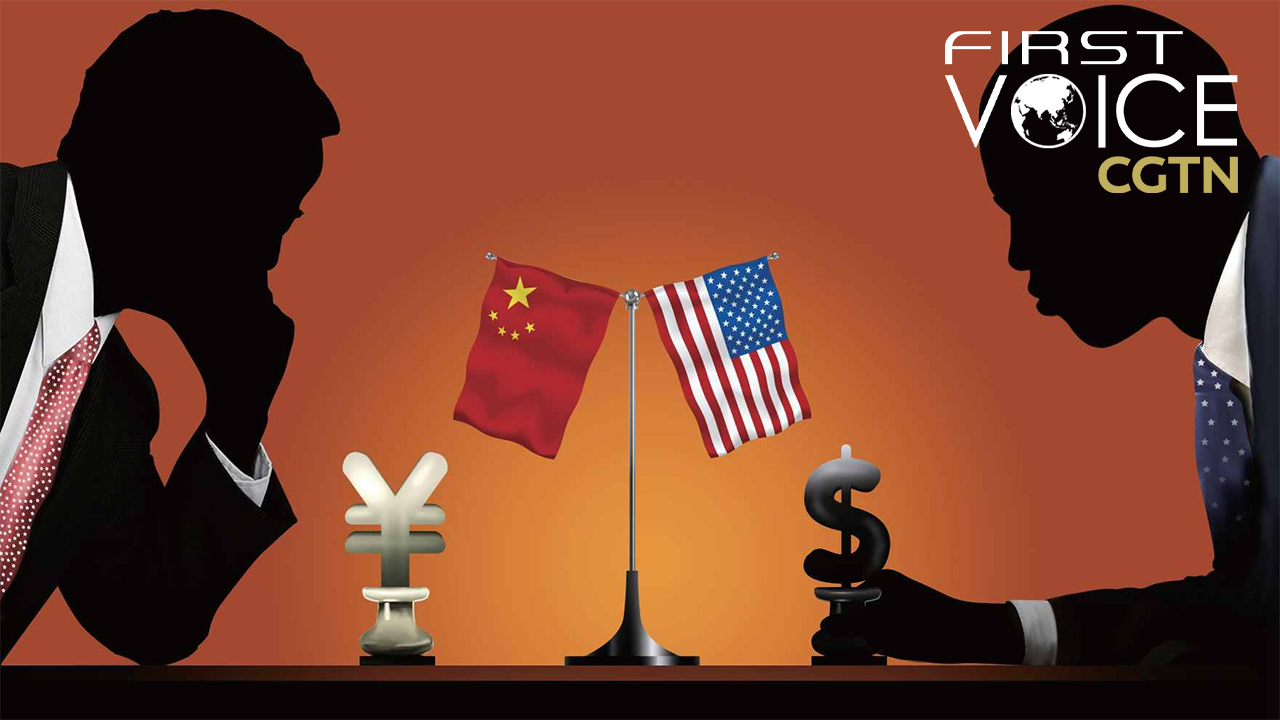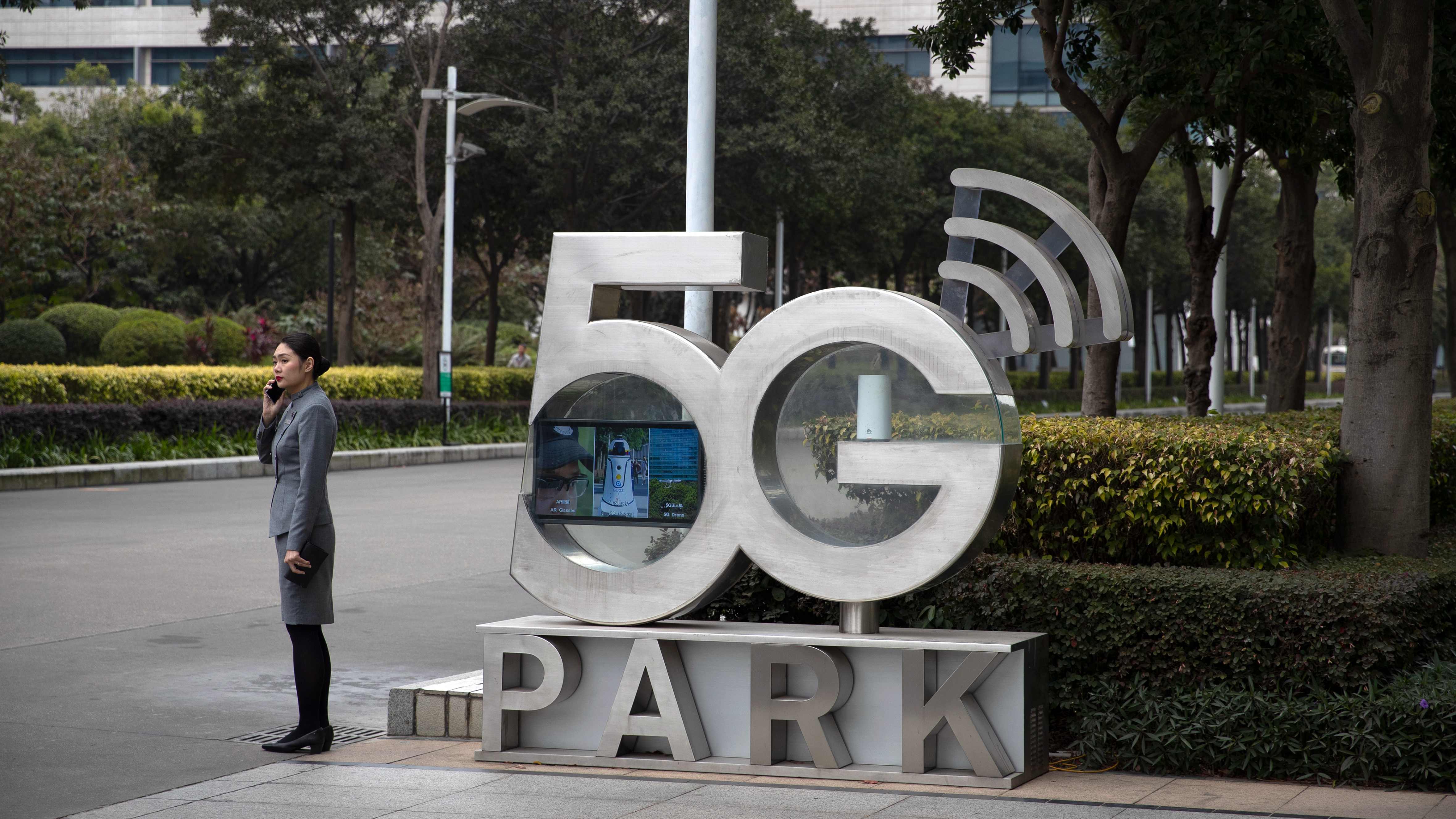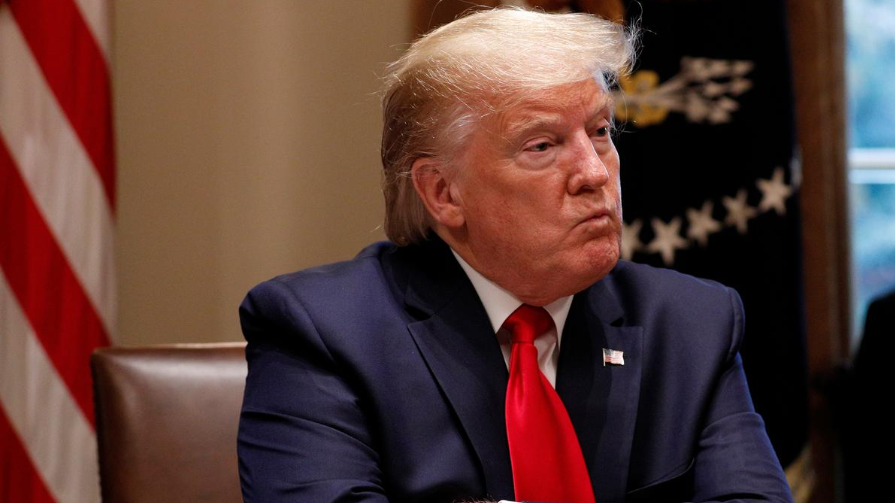
Editor's note: CGTN's First Voice provides instant commentary on breaking stories. The daily column clarifies emerging issues and better defines the news agenda, offering a Chinese perspective on the latest global events.
On September 5, the Wall Street Journal reported that the Trump administration is considering imposing export restrictions on Semiconductor Manufacturing International Corp. ADR (SMIC), the top semiconductor manufacturer in China. WSJ characterizes the act as having the potential to "cut to the heart of China's ambitions to become self-reliant on critical technologies" and "mark a major escalation in the administration's crackdown on Chinese tech companies."
So far, the administration hasn't offered any rationale behind this deliberation. But looking back at the Pentagon's 2019 annual report to Congress on China's military power, some are speculating that it is the suspicion of SMIC aiding the Chinese military that prompted the administration to consider such a move, especially after a U.S. defense contractor SOS International released a report in August describing SMIC as having numerous ties to China's defense sector.
However, this internally-funded report is been viewed by some as depicting a "tenuous" connection between SMIC and the Chinese military. "I'm not sure if this is a justification for tarring them as a military company," Paul Triolo, Eurasia Group's head of the global technology policy practice, told WSJ.
But "tenuous" has never stopped the Trump administration from using similar national security reasons to justify sanctioning other Chinese companies. Huawei, along with the dozens of Chinese companies' names on the U.S.'s Entity List, are the prime examples.
"Over the last twenty years, what has been a surprising transformation is that the Chinese companies have gotten incredibly competitive," said Professor Jin Keyu from the London School of Economics, "a lot of people wanna use an excuse to not play, not engage on fair playgrounds with Chinese companies because they can't beat them anymore."
01:21

On a grander scale, whether to engage in technological competition on a fair footing is the manifestation of the perceptual differences between the two countries. There's the sense in the U.S. and among U.S. politicians that the "China threat" seems to be suddenly crashing onto America's national security agenda. That after the last real existential threat that the U.S. has faced fell in the early 1990s, the liberal democracy earned its sense of superiority and dominance on the world stage.
In this sense, there's no doubt that China would be perceived as "an underdog-turned-usurper" to U.S. position in the world. The very idea that each country should choose its own path of development underlines China's belief that political, economic, and cultural systems cannot be characterized by words like "best" or "perfect," but with suitable. The universal value preached by America is a list of principles created and defined by U.S. unique history. Blending uniqueness and universal together would only lead to a set of sacrosanct perceptions about itself and the world that make America feel unchallengeable.
China, not without its flaws, has presented something of proof that the U.S. way of conduct might not be the only way. As professor Jin describes, it is a "trial of strength" not just between two countries' technological prowess or economic might, but also between the systems. And it is a trial that the U.S. thought it has already won decades ago.
01:41

Technology has been thrown a wrench into this competition. Professor Jin sees that technological changes have caused most of the inequalities in the world. That might be OK if the governments around the world have been willing to take care of the poor and dispossessed, but many of them fail. And the politicians find an alternative enemy for their citizens to blame on – and in this day and age, it is globalization in the crosshair.
Such a tactic is "much better to win an election," said Jin. And it is. The very idea that foreign countries are depriving one's people of its benefits lies at the core of raging nationalism, protectionism, and isolationism in the West, particularly in the United States under Trump's era. As we are seeing in this election cycle, the boogeyman – China – became the target from which the politicians make their political clout out of to woo the electorate and gain power.
With COVID-19 rampaging across the United States, China is both been blamed as the site of the first outbreak and seen as provocative to U.S. prominence with its recovery from the pandemic. Both parties and both campaigns are whacking China to look tough and appear like the strong leader this country needs.
But, the trial of strength has a brutal reality to it – appearance won't matter, only true strength counts.
Scriptwriter: Huang Jiyuan
(If you want to contribute and have specific expertise, please contact us at opinions@cgtn.com.)